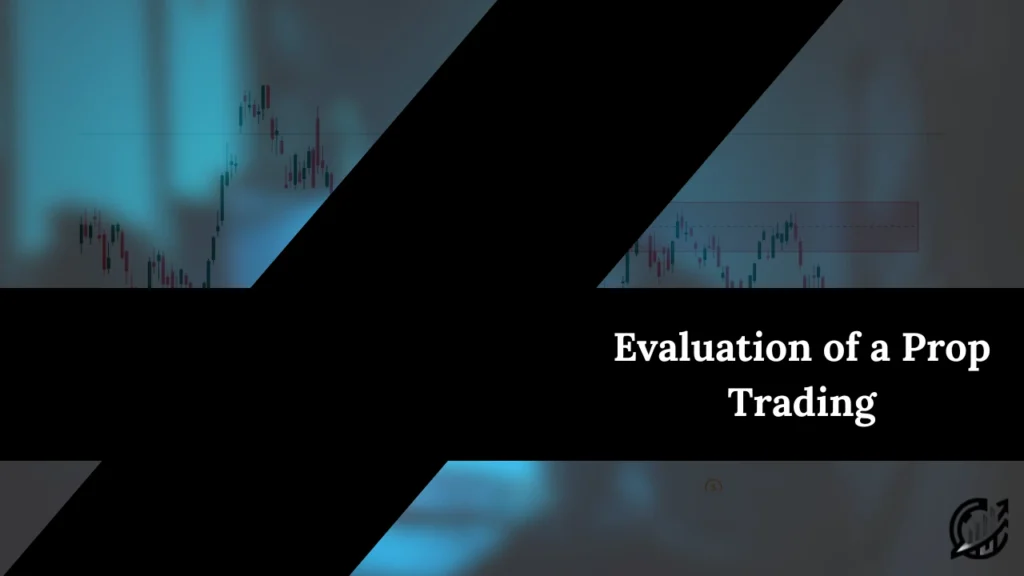
Table of Contents
Proprietary trading firms, also known as prop firms trading, has seen rise in popularity over the last few years. They offer traders the opportunity to trade large capital accounts. Their promising capital ranges from $10,000 to $200,000. It is an exciting opportunity for traders to trade large capital without risking their own capital.
However, there is still 90% failure rate in prop firm trading. Studies reveal that over 90% of traders fail their prop firm challenges. It is important to know why prop firm fail traders, and why traders get failed in following prop firm trading rules.
This article explores how you can avoid mistakes to pass and sustain your funded account journey.
Reasons Prop Firms Fail Traders
Trading Under Pressure
It is a psychological trap. Trader underestimate this but, in reality, this mistake led them taking emotional trade which relies on luck rather than technical analysis. It is the number one reason traders fail prop firm evaluations.
Once a trader pays for an evaluation process, the fear of losing money or the desire to pass quickly often leads to overtrading, revenge trading, and impulsive decision. This is because they are not properly following their trading. We can say that they fail in controlling their psychology.
In this scenario, when traders feel pressured, they shift from logical execution to emotional gambling. This mindset creates anxiety, hesitation, and inconsistent results.
It is important to know its solution. If we focus on process and follow prop trading rules rather than intended outcome, it can be a game of interest, and we can treat the challenge of consistency. Along with that it is recommended to trade with smaller lots because survival is more important than speed.
Poor Risk Management
Many traders fail because they treat funded account like demo accounts. No matter which accounts you are trading, whether its personal or funded, it is important to follow risk management rules. This makes beginner traders a consistent and profitable one.
Using excessive lot sizes, widening stops, or holding through volatile sessions make traders fail prop firm challenges and even passed funded accounts. Rising 3 to 5% per trade might seem tempting, but with a 5% daily drawdown limit, just two losing trades can blow your account.
However, by limiting risk per trade to 1% of the account balance, you can secure your funded account. Always calculate risk-to-reward ratio before entry. Disciplined risk control separates professional prop traders from emotional gamblers.
Ignoring Prop Firm Rules
Prop firms are built on the idea of facilitating skilled traders. They have their own set of rules like daily drawdown limit, new trading bans, maximum trading loss, maximum lot restrictions and consistency requirements.
Traders who fail funded account challenges fail in following their set of rules. Sometime failing a funded account is not because of bad trading, but because they break prop firm trading rules.
Prop firms monitor all trading data systematically. That is the reason even a small violation can invalidate your challenge.
As a prop firm trader, you should study check the firm’s terms and conditions, avoid automated strategies, and create a checklist for compliance before trading. Following their rules is not for limitation, it encourages professionalism in traders.
Lack of Trading Plan
As a trader, you have a plan of when to enter and when to exit. You have a sense of identifying opportunities on live charts. Traders who operate on impulse enter trade emotionally. Remember, as a smart money trader, you must wait for opportunity depending on your structured trading plan. Traders who fail lack a structured trading plan.
A structured trading plan defines when to trade, what setups qualify, how much risk per trade, and how to manage losing streaks. Without these boundaries, traders often switch strategies and chase setups that don’t align with their trading plan.
Its ultimate solution is creating a written trading plan and follow it extremely. You can use trading journal to review decisions. This helps in being discipline. Lastly, if you are trading SMC, focus on high-probability setups around major liquidity levels instead of random trades.
Neglecting Market Conditions
It is important for traders to understand that market environment is dynamic. Trading against the trend is another reason traders fail prop firm challenges. They apply the same strategy in trending and ranging markets. They expect the same results. However, market behavior constantly changes, so you should have an idea which market scenario is perfect for your trading strategy.
Let’s suppose, during high volatility, a breakout strategy may perform well, but in choppy sessions, it may produce multiple false signals.
Its solution lies in identifying market structure shifts and adapts your strategy accordingly. Try to avoid forcing trades when market is choppy and range-bound. Lastly, always aware about global economic and geo-political events. Understanding the context is as important as technical skill.
Unrealistic Profit Targets and Lack of Patience
Unrealistic expectations are a result of flaws in your trading strategy and psychology. If you are a day trader, set your targets accordingly. Trying to double the account and passing the challenge in few trades often leads to account breach.
Mast prop firms require a profit target of 8 to 10%. It is not an impossible if you are working on 1:2 risk/reward. Be patient and achieve this steadily. If you stick to a consistent plan, the chances of passing the challenge become higher.
Its solution lies in 1 to 2 percent profit per week instead of short-term spikes. If you are consistent over 30 days, it would be enough to make you a consistent trader. Prop firms want risk-aware traders.
Poor Emotional Control
Even successful traders fail prop account. This is because they are emotionally weak. They get emotional after a big win or loss. After a big win, overconfidence sets in. In such cases, they increase lot sizes or overtrade. On the other hand, after a big loss, frustration leads to revenge trade.
No matter what the case is, emotions override logic, breaking the discipline prop firms look for.
Solutions of controlling emotions lies in setting daily profit/loss caps to stop trading once limits are reached. You have to try hard to detach emotionally from wins and losses. There is a saying that control your emotions, and your accounts will control its growth.
Final Thought
Prop firms don’t fail traders. Traders fail themselves by ignoring rules, psychology, and risk discipline. Passing a challenge is not about hitting a profit target, it is about hitting consistency, control, and professionalism.
If you are beginner and want to pass a prop firm challenge and keep you funded account master your trading psychology, and refine your money management skill. Remember, in your prop firm world, discipline is your real edge.
FAQs
Why do most traders fail prop firm challenges?
Most traders fail due to poor risk management, over-leveraging, and emotional strategy. Many traders ignore the firm’s rule or trade emotionally. Success in prop firm requires discipline, patience and consistency.
How to pass a prop firm challenge successfully?
To pass a challenge, follow strict risk management, use a tested strategy, and focus on consistency instead of profit targets. Try to avoid emotional trading decisions and maintain steady progress throughout the evaluation period.
Are all prop firm challenges designed to make traders fail?
No, these rules are made to test trader’s psychology, discipline, and consistency. Prop firms use strict rules to protect their capital and identify traders who can manage risk professionally. Their goal is not to make you fail.
I’m Abdullah Shah, a content writer with three years of experience in crafting engaging and informative content. My background in market analysis complements my work, allowing me to create content that resonates with audiences. I’m also a seasoned practitioner in the forex and crypto markets, with a strong foundation and deep interest in finance. My passion for the financial world drives me to produce content that is both insightful and valuable for those interested in understanding market trends and financial strategies.





